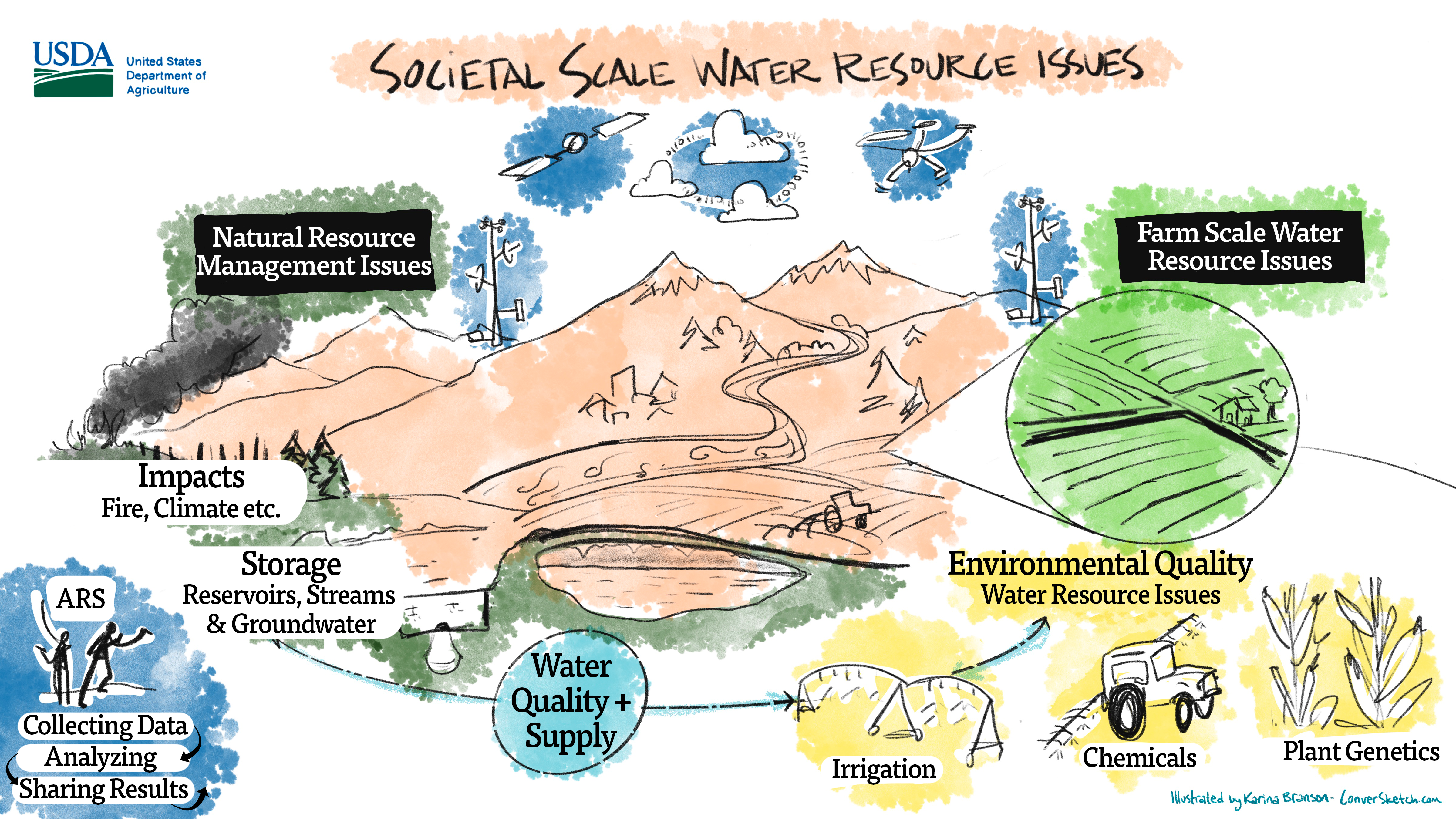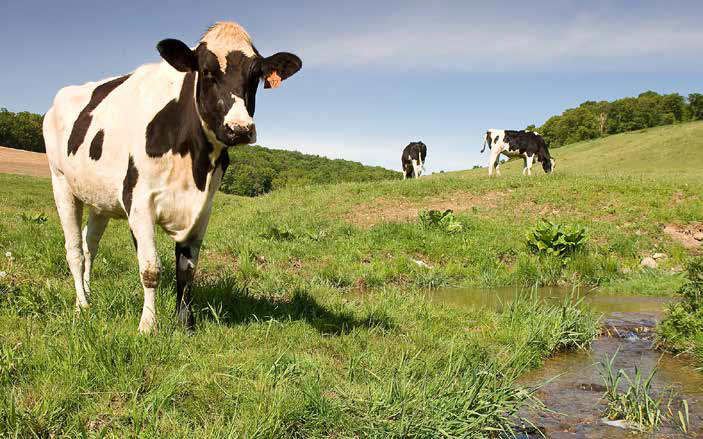Water governs life on earth. As such, no resource is more fundamental to both agricultural and natural systems than water. Agricultural production and sustainability can only be realized when the water use is balanced among production optimization, agroecosystem services, and other societal needs. However, decisions that optimize water for one purpose may hamper the optimization for other uses. Large, societal-scale issues must find solutions that optimize water utilization across many competing issues, scales, and purposes (Fig. 4).
The ARS portfolio of historical and active research addresses the full range of water issues in agricultural and land resources. Since establishing a coordinated water program in 2000, ARS water research has evolved toward increasing complexity and transdisciplinary teams to develop innovative science tools to solve challenges. Even with this focus, however, many critical water issues remain unresolved. ARS will broaden transdisciplinary research approaches that build on shared discovery to address society’s water resource issues and transform water stewardship.
Transdisciplinary Science Begins with Partner Needs. High-quality, within-discipline research is foundational to addressing the complex, multifaceted challenges facing water and agriculture now and in the future. Actionable, transdisciplinary science is designed around stakeholder needs. ARS strives to solve problems at the interface of agriculture and water resources examining the effects of agriculture on water and the effects of water availability, quality, and distribution on food production and agroecosystem health.
Major water challenges are rarely discrete, single-discipline issues. Groundwater depletion in regional aquifers, water scarcity and competition, shifting precipitation intensity, infrastructure integrity, flooding, and hypoxia in near shore environments all exemplify challenges requiring transdisciplinary research approaches. ARS will continue as the most responsive network of scientists addressing these broad challenges that impact society and connect agricultural water uses with competing, vital water demands.
Socially relevant solutions often incorporate science from multiple, interconnected challenges, leading to decision and policy relevant information. However, implementation often requires engagement and adoption by key stakeholders. ARS scientists will work closely with stakeholders to identify needs, engage interdisciplinary research teams, and mobilize multi-agency collaborative efforts to develop, test, implement, and refine solutions in concert with decision-makers and stakeholders.
The nimble and responsive solutions envisioned in the future to address our societal grand challenges include attending to infrastructure integrity and needs.
|
|
Supporting Future Transdisciplinary Research. Historically, ARS research has followed a disciplinary focused approach with research linked to defined programmatic areas. At present, research activities are allocated across 4 programmatic areas and 16 national programs. However, many of the environmental processes and agricultural practices, which influence water use, availability, and quality, bridge multiple national programs. Thus, ARS will re-envision how to maintain the strengths of the disciplinary culture while fostering a culture that facilitates transdisciplinary research spanning national programs. In conjunction with other USDA agencies, ARS has put in place mechanisms that enable transdisciplinary research, such as the Grand Challenge Initiative, the LTAR Network, and the USDA Climate Hub.
Although these platforms are typically aimed at large-scale projects that extend across multiple locations and research avenues, support is needed augment interdisciplinary research within individual ARS projects and within projects focused at multiple sites. ARS will also create mechanisms that encourage research activities to reach across all national programs and disciplinary boundaries.
Ensuring future transdisciplinary research requires foresight to encourage coordination and partnerships. As science and technology advance over time, humanity’s sum knowledge has increased exponentially, yet the cognitive ability of the individual scientist to grasp this knowledge is unchanged. As a result, scientists and researchers have become specialized in an ever-increasing number of subdivided fields of study. Future transdisciplinary research will require coordination between and increasing number of individuals and integration of information from across contributing disciplines. Novel approaches to enable these interactions will ensure success in these high risk, transdisciplinary projects.
The ability to establish successful partnerships between research teams hinges on developing a shared vision and building trust among scientists and stakeholders. A shared vision provides a unity in purpose that embraces the breadth of perspectives needed to fully recognize constraints and available resources required for robust solutions. It also provides the foundation to bridge cultures. Different research organizations and disciplines have different histories, perspectives, and epistemological foundations. ARS will continue to provide individual scientists with experiences and training to encourage inclusiveness between disciplines, foster communication using shared terms and language, and develop skills needed to overcome our Nation’s greatest agricultural challenges.
|
 Transdisciplinary Science in Water Solutions
Transdisciplinary Science in Water Solutions

